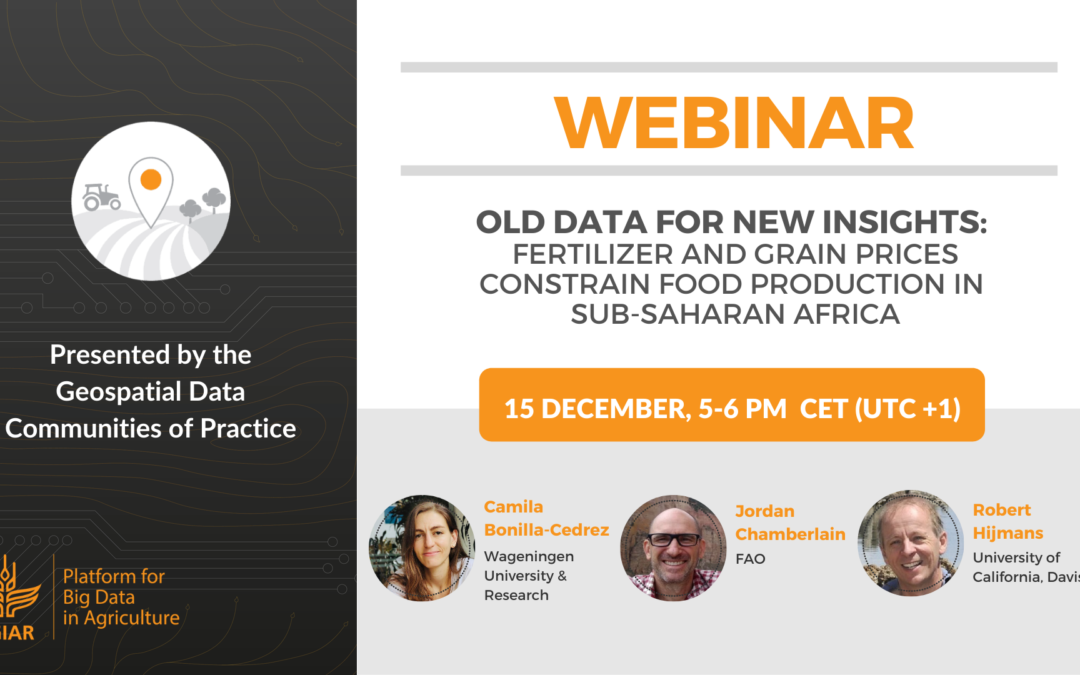Webinar – Old data for new insights
This webinar by the Geospatial Data Community of Practice presents a new study published in Nature Food. Panelists show that filling ecological yield gaps for maize in Sub-Saharan Africa is not necessarily a reasonable goal and share how CGIAR’s GARDIAN enabled them to find experimental observations from maize trials and analyze them using a machine learning model to estimate maize response to fertilizers.
This webinar presents a new study published in Nature Food, in which Camila Bonilla-Cedrez (Wageningen University & Research), Jordan Chamberlin (Food and Agriculture Organization of the United Nations), and Robert J. Hijmans (UC Davis) show that filling ecological yield gaps for maize in Sub-Saharan Africa is not necessarily a reasonable goal.
In addition to the research findings, the authors will also present how CGIAR’s GARDIAN enabled them to find 12,081 experimental observations from maize trials in 1,141 locations, extracted from 227 primary research data sets, and analyze them using a machine learning model to estimate maize response to fertilizers. This paper is one of GARDIAN use-cases to aggregate and analyze such a large number of agricultural experiment data sets, showcasing that opportunities for new research with old data are real.
Speakers
Camila Bonilla-Cedrez
Wageningen University & Research
Jordan Chamberlin
Food and Agriculture Organization of the United Nations
Robert J. Hijmans
UC Davis
December 16, 2021





